|
|
|
Your weekly dose of evidence
|
|
Only around 5% of Australians eat the recommended five serves of vegetables and two serves of fruit a day. Whether you’re vegetarian or not, most of us could do with increasing our fruit and vegetable intake, along with eating plenty of legumes, nuts, seeds and whole grains. As Yasmine Probst and Joel Craddock explain, plant-based diets are high in fibre and nutrients that prevent inflammation and boost our immune systems.
|
Fron Jackson-Webb
Deputy Editor/Senior Health + Medicine Editor
|

|
|
|
|
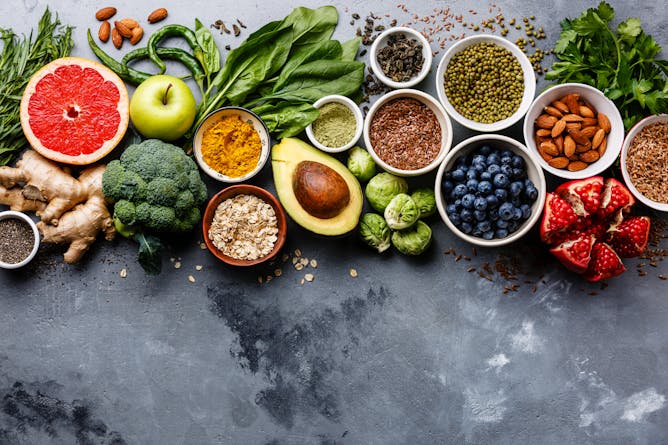
We’ve been told there are many benefits of eating our veggies. Could they improve our immune system too?
From shutterstock.com
Yasmine Probst, University of Wollongong; Joel Craddock, University of Wollongong
There are many things we can do to support our immune systems. It turns out going vegetarian might be one of them.
|
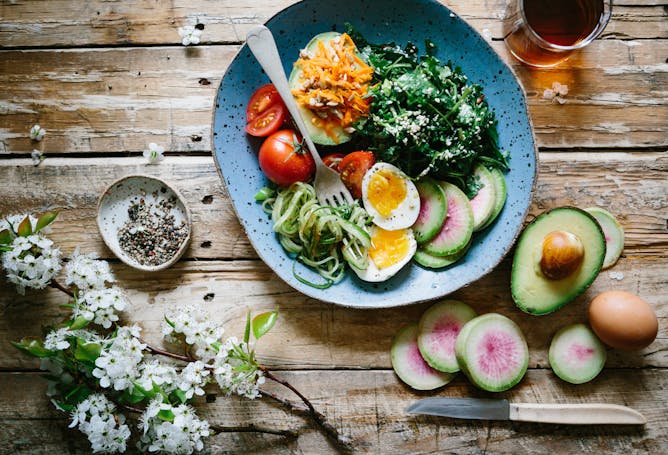
Four out of five experts say a vegetarian diet is healthier.
brooke lark unsplash
Alexandra Hansen, The Conversation
Not eating animals might make you feel more virtuous, but is it good for your health?
|
From the archives: plant-based diets
|
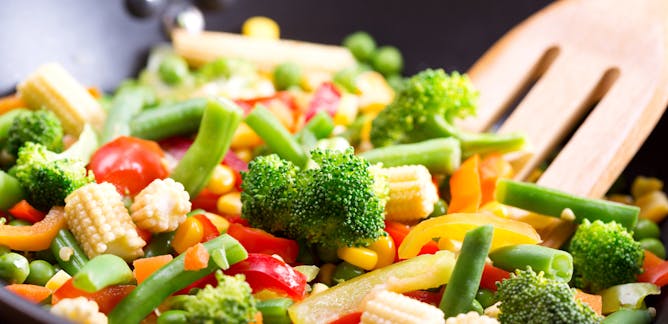
Clare Collins, University of Newcastle
A flexitarian is a vegetarian who eats small amounts of meat.
| |
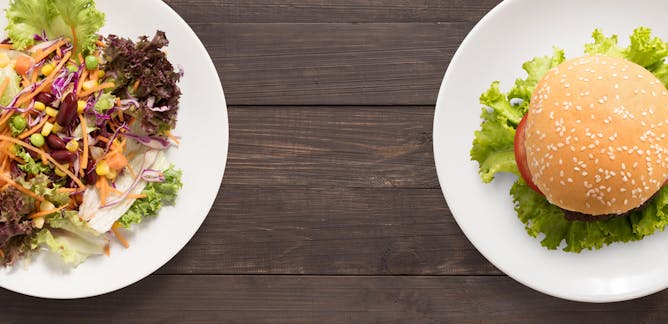
Melody Ding, University of Sydney
When we compared the risk of early death between vegetarians and non-vegetarians while controlling for a range of other factors, we did not find any statistical difference.
|
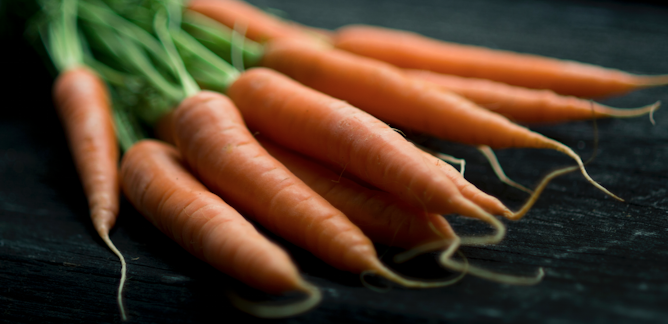
Genevieve James-Martin, CSIRO; Gemma Williams, CSIRO; Malcolm Riley, CSIRO
The populations of most Western countries report eating far less fruit and vegetables than they're supposed to. So what’s making it so hard for us to get to the recommended 'two and five'?
| |
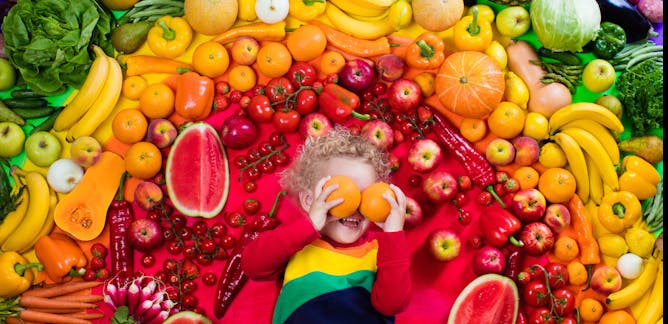
Yasmine Probst, University of Wollongong; Ruth Crowe, University of Wollongong
It's not just about getting kids to eat their greens; they should be eating fruits and vegetables of all different colours. Here are some strategies to make it easier.
|
|
|
Expert answers to serious, weird and wacky questions
|

Your brain is about 70% water.
Shutterstock
David Farmer, Florey Institute of Neuroscience and Mental Health
An adult brain weighs about 1.5kg. It's mostly water with some fat, protein, sugar and a dash of salt. Sounds like pancakes, I know, but I once tried chicken brains and, well, pancakes are tastier.
|

A few days after baby molluscs come out from tiny eggs, they start building their shell layer after layer.
Emily Nunnell/The Conversation NY-BD-CC
Aurelie Moya, James Cook University
Molluscs that have shells - like pipis, clams and oysters - have to build their own shell from scratch. And they keep building it their whole life, using chemicals from the sea and their own bodies.
|
Top picks from the week
|

Digital approaches mean people can access therapies from their own home.
From shutterstock.com
Sebastian Rosenberg, Australian National University; Ian Hickie, University of Sydney
Online therapies for mental health can be as effective as talking therapies. If we want to expand access to mental health care, it's important we embrace digital approaches.
|

Research out of the US tested different varieties of beer and wine for the presence of glyphosate – but there’s lots to consider when interpreting the findings.
From shutterstock.com
Ian Musgrave, University of Adelaide
The amount of alcohol you'd have to drink before glyphosate posed even a negligible risk would harm you well before the glyphosate would.
|
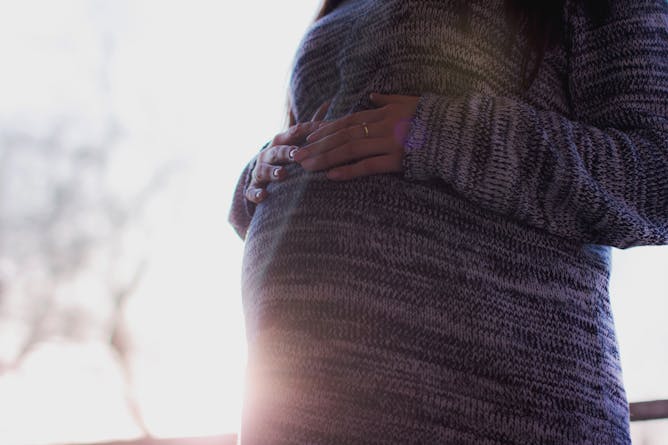
Gestational diabetes is diagnosed when women have elevated levels of sugar in their blood during pregnancy. But there’s no international threshold.
freestocks.org
Rae Thomas, Bond University; Clare Heal, James Cook University; Julia Lowe, University of Newcastle
Sarah and Donna are 26 weeks pregnant and have the same blood sugar levels. But while Donna is diagnosed with gestational diabetes, Sarah is spared from the label. It comes down to where she lives.
|
|
|
| |
Featured jobs
|

|
University of Melbourne — Parkville, Victoria
|

|
UNSW Sydney — Kensington, New South Wales
|

|
Deakin University — Waurn Ponds, Victoria
|

|
University of Southern Queensland — Toowoomba City, Queensland
|
|
|
|
| |
| |
| |

|
| |
| |
| |
Featured events
|

|
UNSW Sydney, Kensington, New South Wales, 2052, Australia — UNSW
|

|
Monash Conference Centre, Level 7, 30 Collins Street, , Melbourne, Victoria, 3000, Australia — Monash University
|

|
MacLaurin Hall, The Quadrangle, Camperdown , Sydney, New South Wales, 2006, Australia — University of Sydney
|

|
The University of Sydney, Sydney, New South Wales, 2006, Australia — University of Sydney
|
|
|
|
| |
| |
| |
| |
| |
|
|
|
|
|
|
|